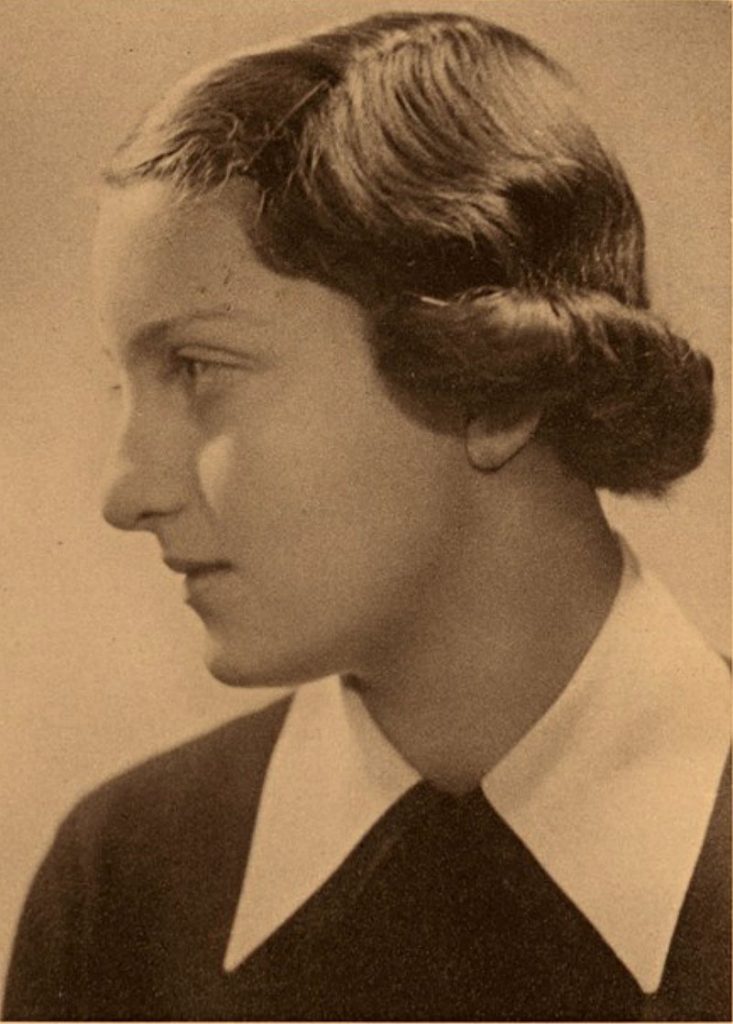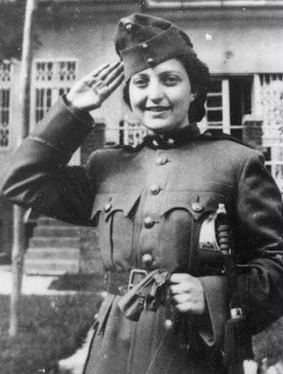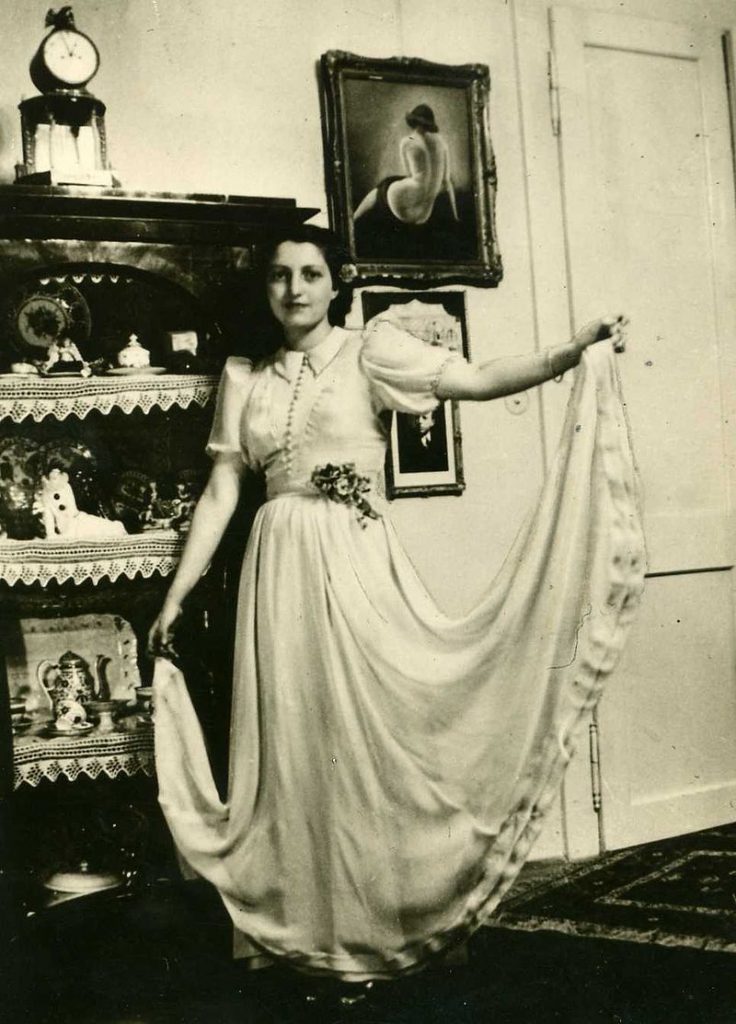The story of the Hungarian poet who became a national heroine in Israel

One of the most poignant songs included in many Holocaust memorial convocations held in Israel is a short poem, set to music, known popularly as Eli, Eli. The four-line poem was written by one of the most famous figures in contemporary Jewish and Israeli history. Hannah Senesh was one of thirty-seven Jews living in Palestine – now Israel – who were trained by the British army to parachute into Yugoslavia during World War II in order to help the Jews of Hungary.
Hannah Senesh (Hannah Szenes – Hungarian name: Anikó Szenes) was born in the Hungarian capital, Budapest on July 17, 1921, into a wealthy Hungarian Jewish family. Her father, who died when she was a little child, was a famous and well-known poet while her mother was an elegant homemaker. Hannah herself demonstrated her talent towards writing and poetry and kept a diary from her age of thirteen until her death. She studied at a Hungarian high school in the capital, but she shortly discovered the unconventional political situation in the country towards Jews.
After graduating in 1939, she decided to move to Palestine where she began to study at the girl’s agricultural school in Nahalal and completed a two-year course in agriculture. During her studies, she kept on writing different poets and even wrote a short play about her experiences.

Her life faced rapid and sudden changes four years later when she decided to join the British army and to become a volunteered soldier in the Women’s Auxiliary Air Force as an Aircraftwoman in the 2nd Class. Hannah was trained in Egypt for parachuting and to take part in a crucial European mission. The mission’s purpose was to offer aid to beleaguered European Jewry, especially in Hungary, and to stop the growing Nazi influence on the continent. Last but not least, the British forces also wanted to prevent the deportation of Hungarian Jews to Auschwitz.
Senesh was one of the thirty-three chosen to parachute behind enemy lines. To reach her native Budapest, she was parachuted in March 1944 into Yugoslavia and spent three months there close to the Hungarian border. After a while, they discovered that it was too late because the German forces already occupied Hungary and the team decided to fall back. Senesh at the same time left her team and crossed the Hungarian border with some of her fellow soldiers where she was immediately captivated by the Hungarian police and Nazi forces.
[button link=”https://dailynewshungary.com/april-16-memorial-day-of-the-hungarian-victims-of-the-holocaust/” type=”big” newwindow=”yes”] April 16 – Memorial Day of the victims of the Holocaust[/button]

The authorities found her equipment given by the British forces and she was tortured cruelly and repeatedly over the next several months. Despite these conditions, Senesh refused to divulge any information about her mission. The Nazi military prosecutor sentenced her to death. She was executed by a firing squad on November 7, 1944, and for her own request, it happened without any obscuring. When she was executed she refused the blindfold, staring squarely at her executors and her fate. She was only twenty-three years old.
In 1950, Senesh’s remains were brought to Israel and re-interred in the military cemetery on Mount Herzl. Her diary and literary works were later published, and many of her more popular poems have been set to music. In 1993, the Hungarian military court acquitted her from the charges. Hanna Senesh got a special commemorative plaque on the wall of Hungarian Jewish Museum, and a park in District VII was named after her.
[button link=”https://dailynewshungary.com/hanna-szenes-last-letter-to-family-was-disclosed/” type=”big” color=”purple” newwindow=”yes”] Hanna Szenes’ last letter to family was disclosed [/button]

Her most famous poems:
Eli, Eli
My God, My God, I pray that these things never end,
The sand and the sea,
The rush of the waters,
The crash of the Heavens,
The prayer of Man.
Blessed is the match consumed in kindling flame.
Blessed is the flame that burns in the secret fastness of the heart.
Blessed is the heart with strength to stop its beating for honor’s sake.
Blessed is the match consumed in kindling flame.
One – two – three… eight feet long
Two strides across, the rest is dark…
Life is a fleeting question mark
One – two – three… maybe another week.
Or the next month may still find me here,
But death, I feel is very near.
I could have been 23 next July
I gambled on what mattered most, the dice were cast. I lost.
Fortunate is the match that burns and kindles the flames.
Fortunate is the flame that burns inside the hearts.
Fortunate are the hearts to know when to stop with dignity.
Fortunate is the match that burns and kindles the flames.
Featured image: Wikimedia Commons by Hannah Senesh Memorial Center
Source: www.zionism-israel.com, www.jwa.org, www.isracast.com, www.jewish.hu, Wikipedia







